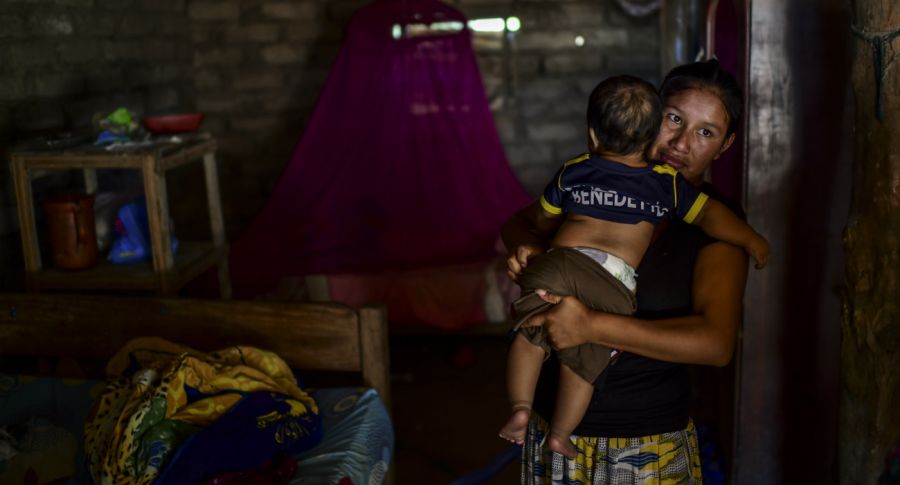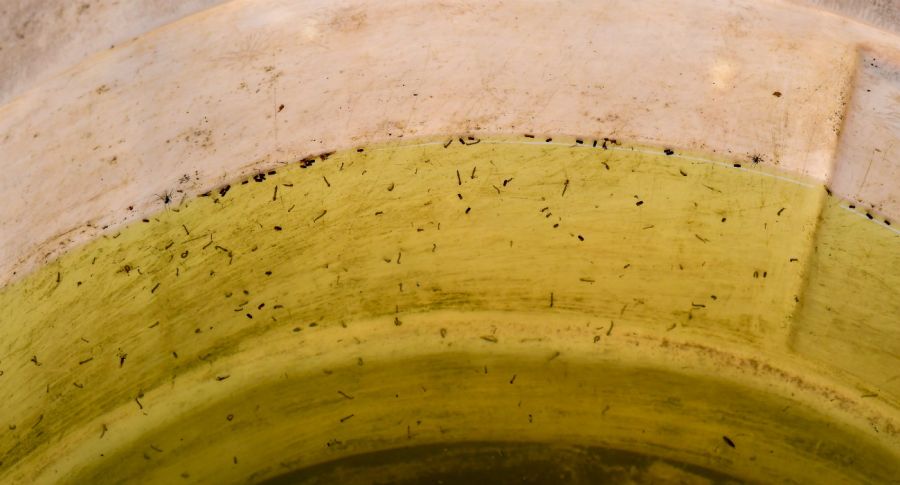In parched and dusty villages in the north Argentina, children have been dying of hunger and disease linked to a lack of clean water and nutrition, despite living in one of region's richest economies.
Community leaders say that since January, 10 children have died of malnutrition, or similar causes associated with lack of water and food, in an isolated indigenous area in Salta Province, the country's poorest.
For Valerio Cobos, the chief of the Wichi community that is losing its children, his people's extreme poverty is the result of white repression of indigenous people during the last century.
"For the creoles, we are less than rubbish," he said.
Indigenous Argentines make up only 2.38 percent of the national population, makes up and is distributed among 31 sub-tribes with the majority living in Salta. The province has the largest indigenous population (6.5 percent), the majority of which is Wichi, who live scattered in rural areas and survive by selling coal and handicrafts.
Cobos – leader of around 50 families living on the outskirts of Embarcacion, a northern town built on lands the Wichis claim as theirs – said that eight children had died of hunger and two others from health problems associated with a lack of clean water and food in his scattered community.
The spate of child deaths has prompted the local government to declare a health emergency and pledge to improve water treatment and supply in the region.
A complicating factor is that many of the community's women only speak the Wichi language and avoid going to health centres or hospitals where there are no interpreters.
After the string of child deaths, the Salta government decreed a socio-health emergency.
A give-year-old girl died in February at a hospital In the arms of the provincial health minister, Josefina Medrano, on the border with Bolivia and Paraguay.
“I am a paediatrician, I trained to take care and ensure the health of children. It is a desperate situation," the minister told local newspapers following the child's death.
Armed with such raw experience, Medrano has promised to work to improve the lives of Wichis in the province, but conceded that it would take time.
"This has been going on for many years in Salta. So far no government has remedied the situation."
Without food
Misión Chaqueña, around 200 miles north of the city of Salta, is the largest Wichi community in the country with about 8,000 inhabitants.
Given the its isolating landscape and closed-off mountains, the community suffers from torrid summers and inclement winters.
Rodolfo Franco, a doctor from Buenos Aires who runs its sole health centre, says the situation is stark.
"People are dying of hunger and thirst, of malnutrition, dehydration, lack of work and lack of a future," Franco told AFP.
His ramshackle hospital provides what little comfort it can, but lacks even the most basic equipment.
The bed used for maternity patients broke in half years ago and the midwife, Balbina Gutierrez, says she is hopeful of getting a replacement, but there are other priorities.
"We need sheets, the ones we have are very ragged," she said "And disinfectant!"
There is no ambulance. The nearest one is kept at another clinic 30 miles away by dirt road.
"There are no heaters or fans," said Franco. Nor is there time off: he is the only doctor.
The more fortunate families in the poor community have electricity, but the simple homes have no running water. Outbreaks of diarrhoea, vomiting, herpes and parasitic diseases are frequent. Chagas disease is rampant and dengue is a constant threat.
Although Mission Chaqueña has both primary and secondary bilingual schools, poverty forces many to stop attending.
"The clothes! The shoes! If you don't have enough to eat, you can't!" said Elsa Rojas, an illiterate mother with two children.
Lack of hope
Wichi teacher Rosa Rodríguez is worried about the lack of hope in the community.
"Since January, four teenagers committed suicide," she said. "We need young people to continue studying."
The most recent suicide was two weeks ago when a teenage boy hanged himself from a tree.
Although many mothers receive social assistance from the State for their children under six, the benefit is about 2,600 pesos per month (US$40) and only reaches those documented in a population where registration is rare.
or Nora Segundo, Wichi community leader of the neighboring village of Carboncito, time is running out for a more hopeful future.
"How long are we going to wait and keep waiting and waiting. There are many dead kids. My four-year-old girl is malnourished. I don't know what to do."

Estela Cabral, 60, knows that bureaucracy and long distances don’t help. Her son José, 37, is incapacitated by meningitis that he suffered when he was only six months old. He never got a pension.
For four years, she has also had to take care of her son Ángel, 40, now a paraplegic after shooting himself in the temple in a failed suicide attempt "for lack of work, and because of alcohol," according to his mother.
Unsafe water
In Mision Chaqueña, the Wichi collect rainwater or extract it with a pump that runs a few hours a day.
"The water comes out with red worms in it, sometimes it's yellow and leaves the containers black – see?" says María, a local woman.
People use the pipe to fill up the containers – plastic herbicide drums discarded by neighbouring farmers, on whose irrigated lands grow tomatoes and peppers.
"We want good water to drink, to make a vegetable garden," says Rojas, 50.
Worms and tiny insects flit across the surface of the water. Rojas scooped some up with an old food can, used the sleeve of her blouse as a filter, and drank.
Local authorities have deployed water treatment units to ease the community's plight. A children's nutritional recovery centrewith 12 beds is operating in the area and the Red Cross has pledged assistance.
But in Mission Chaquena, people are still waiting for tangible signs of improvement.

by Sonia Avalos, AFP



















Comments